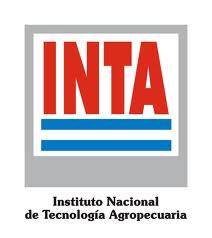INTA
The National Institute of Agricultural Technology (INTA) from Argentina is a governmental institute with 42 experiment stations, 240 extension and technology transfer units and 12 research institutes. The Biotechnology Institute (formerly Molecular Biology Institute) is devoted to the study of the molecular biology aspects of agricultural and veterinarian problems. Since 1991 when it was created, INTA is part of the governmental biotechnology biosafety commission (CONABIA) that deals with GMO environmental risk assessment. About 15 years ago, the first GMO detection facility was developed and it became responsible of the analysis of more than half of the exported GMO grains from Argentina, which was, until last year, the second largest producer and exporter of GMO grains.
Role
INTA will participate in WP7, mainly in the task T7.1 which will analyze the current strategies and experience on monitoring ERA. These results will focus on their relevance to support and updated EU ERA Guidance Document. INTA will provide research expertise on implementing and developing molecular markers to study the impact of GMOs on target organisms. Besides, Argentina is one of the countries with the highest and earliest adoption of genetically modified crops and an important supplier of GM derived products for Europe, resulting in an interesting model to evaluate post commercialization impacts after long large scale GMO release.
Staff members’ profile
Dr. H. Esteban Hopp, Coordinator of Molecular Biology, Bioinformatics and Advanced Genetics Strategic Area of INTA and involved, for more than 17 years to the Argentine governmental biotechnology biosafety commission (CONABIA) helping to develop the local regulations for GMO environmental risk assessment. He is also the Senior Professor of Genetics and Genomics at the Faculty of Sciences, University of Buenos Aires.
Dr. Daniela Tosto, Senior Researcher at the Biotechnology Institute of INTA, is heading the project: Development of genomic tools for the detection of GMOs and monitoring of environmental impact on target species at INTA.
Dr. Marisa López Bilbao, Senior Researcher at the Biotechnology Institute of INTA, is heading the Compositae Transformation Group and coordinating an INTA Project in obtaining biotic and abiotic stress resistant lettuce plants which involves traditional and biotechnological methods.

